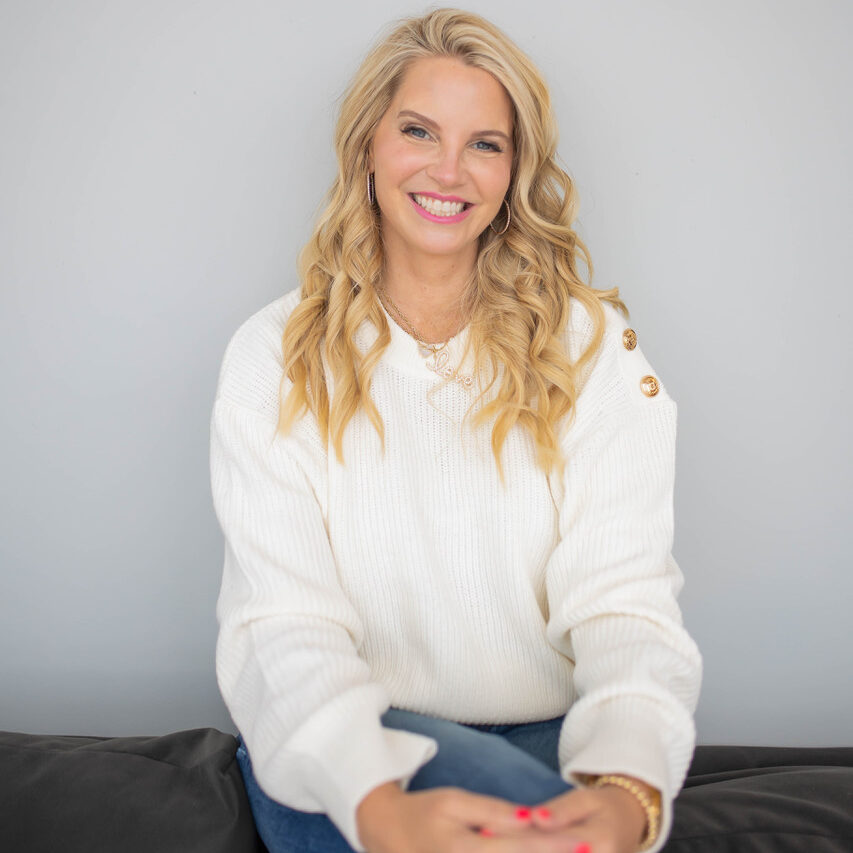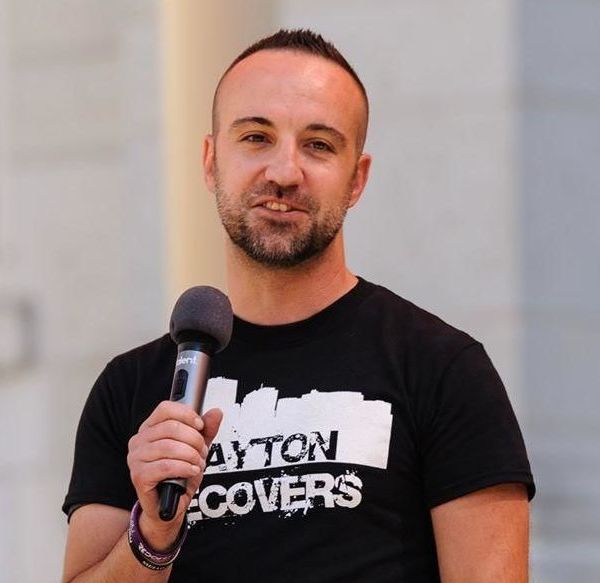By Christy Osborne, Senior Certified Sobriety Coach, Author of Love Life Sober, A 40 Day Alcohol Fast, Co-Host and Founder of “But Jesus Drank Wine, and Other Stories That Kept Us Stuck” – a podcast and community.

To the outside world, it appeared I had it all—a loving husband, two children, a popular blog, and even a part-time role as a royal commentator on Sky News. As an American living in London, I often posted glossy photos of myself with a glass of rosé in hand. But behind the scenes, my reality was far from picture-perfect.
I was exhausted. Every evening, I drank wine—sometimes two glasses, sometimes more. I woke up most mornings nursing a hangover, yet no one told me I had a problem. Everywhere I looked, women my age were doing the same—drinking as a treat, to relax, to reward themselves, to have fun, and to connect with partners and friends. Alcohol everywhere was totally normalized.
One morning in March 2020, I woke up with a particularly awful hangover. As I scrolled through my Instagram feed, my life felt increasingly inauthentic. Outwardly, I appeared happy, but inwardly, joy only seemed accessible when alcohol was involved. My family life looked perfect, but my relationship with my husband was strained, and alcohol was becoming a priority over my children. I often chose the sofa and a glass of wine over reading them a bedtime story.
I knew something had to change. But the thought of giving up alcohol terrified me. I couldn’t imagine socializing, going on holiday, attending a party, or even unwinding without a drink.
I decided to conduct an experiment—to remove alcohol from my life and see what happened. Then, the pandemic hit, and we were literally, locked inside.
Here’s what I learned from my first 40 days of sobriety:
Week 1: The Awakening
The first step was becoming aware that I needed a break. I didn’t declare that I’d never drink again. I simply wanted to see if life would feel better without alcohol.
The first week was tough. Intense cravings hit, but I managed them by playing the tape forward—a tactic I now use with my coaching clients. I asked myself, “What does the full picture look like if I have that glass?”
The tape always ended the same way: one glass would lead to two, then to finishing the bottle. I’d wake up at 3 AM with a pounding headache and spend the next day exhausted. By evening, I’d reach for another drink to undo the hangover, perpetuating a vicious cycle. Recognizing this loop helped me resist.
That first week, my sleep was erratic, but I held on to the hope that good-quality sleep would come.
Fun fact: After just one week without alcohol, your liver begins to heal, and you reduce your risk of cancer. I was shocked to learn that alcohol is a class 1 carcinogen linked to seven types of cancer, including breast cancer.
Week 2: Weathering the Storm
By the second week, I started getting proper sleep. I learned that while alcohol may knock us out, it disrupts the REM sleep our bodies need. Without it, I was finally sleeping through the night without waking up for water or bathroom breaks. I began waking up with more energy.
However, my body was still detoxing. I experienced headaches and felt achy, but I reminded myself that this was part of the healing process. I took extra care of myself—early nights, naps, and mocktails to curb cravings.
Fun fact: After two weeks, your glucose levels stabilize, your cholesterol can drop by 5%, and your cortisol and adrenaline levels begin to balance.
Week 3: Transitioning Towards Tranquility
One reason I drank was to manage stress and anxiety. Imagine my surprise when I learned that alcohol actually raises cortisol and adrenaline, making life more stressful. I realized I had been drinking to cope with the very problems alcohol was creating.
By week three, I felt calmer. Tasks like folding laundry or clearing my inbox no longer felt overwhelming. My energy increased, and my sleep became more consistent. Each day brought new clarity.
Fun fact: Three weeks without alcohol can significantly improve gut health and nutrient absorption. A healthier gut means better mood regulation, thanks to improved serotonin production.
Week 4: Reaping Physical and Mental Benefits
By the fourth week, the changes were undeniable. I was sleeping soundly every night, and my skin looked noticeably better. Alcohol dehydrates the skin and depletes vitamin A, which is essential for collagen production. Without it, my skin regained its glow.
More importantly, my sense of joy returned. Alcohol suppresses the brain’s ability to produce dopamine and serotonin naturally, which is why regular drinkers often need alcohol to feel happiness. Without it, my mood improved steadily.
Fun fact: After four weeks without alcohol, liver fat can decrease by 20%, hydration levels improve, and your resting heart rate lowers.
If you’re curious about trying a 40-day break from alcohol yourself, my book, Love Life Sober: A 40 Day Alcohol Fast to Rediscover Your Joy, Improve Your Health, and Renew Your Mind, offers daily guidance, practical tips, and faith-based encouragement to support your journey.
Weeks 5 & 6: Embracing the New Normal
By weeks five and six, I had found my stride. I didn’t declare that I’d never drink again; I simply told myself, “I’m not drinking today because I feel better without it.”
My cravings dissipated as I experienced the benefits of sobriety. I realized that the reasons I used to drink were myths. It didn’t help me sleep. It wasn’t a real treat, given how awful I felt afterward. And it wasn’t even that fun anymore when I considered the headaches and hangxiety.
Fun fact: By six weeks, you’ve saved thousands of calories and potentially hundreds of pounds. Your stomach lining begins to heal, and cholesterol levels continue to drop.
1,765 Days Later: A Life Transformed
The first 40 days were hard, but they were worth it. At the time of writing this, I haven’t had a drink in 1,800 days. I’ve saved £35,340 and countless hours of hangover-induced misery.
Today, I run a successful life coaching practice helping women take a supported break from alcohol. My approach isn’t about labels or declarations. You don’t have to call yourself an alcoholic or say you have a problem. You can simply see if life feels better without alcohol and decide from there.
If you want structured support, my book Love Life Sober is a great place to start. It’s available on Amazon and at major bookstores. You’ll find it packed with personal insights, neuroscience-backed facts, and encouragement to help you find freedom from alcohol.
If I can do it, you can too.
To learn more about 1:1 or group coaching with me, follow me on Instagram @LoveLifeSoberwithChristy or visit my website, lovelifesober.co.uk.
*
Would you like to share your recovery story with Recovery.com? Contact Recovery.com Contributor, Caroline Beidler, today at carolinebeidler@gmail.com to learn more!




